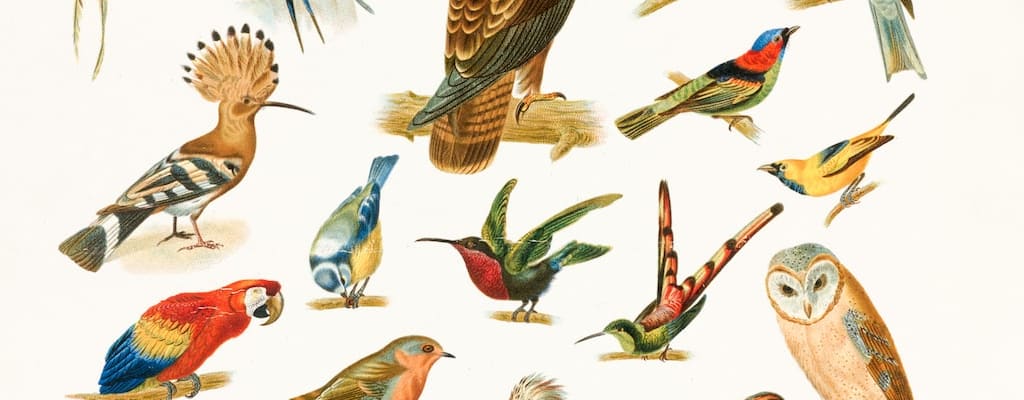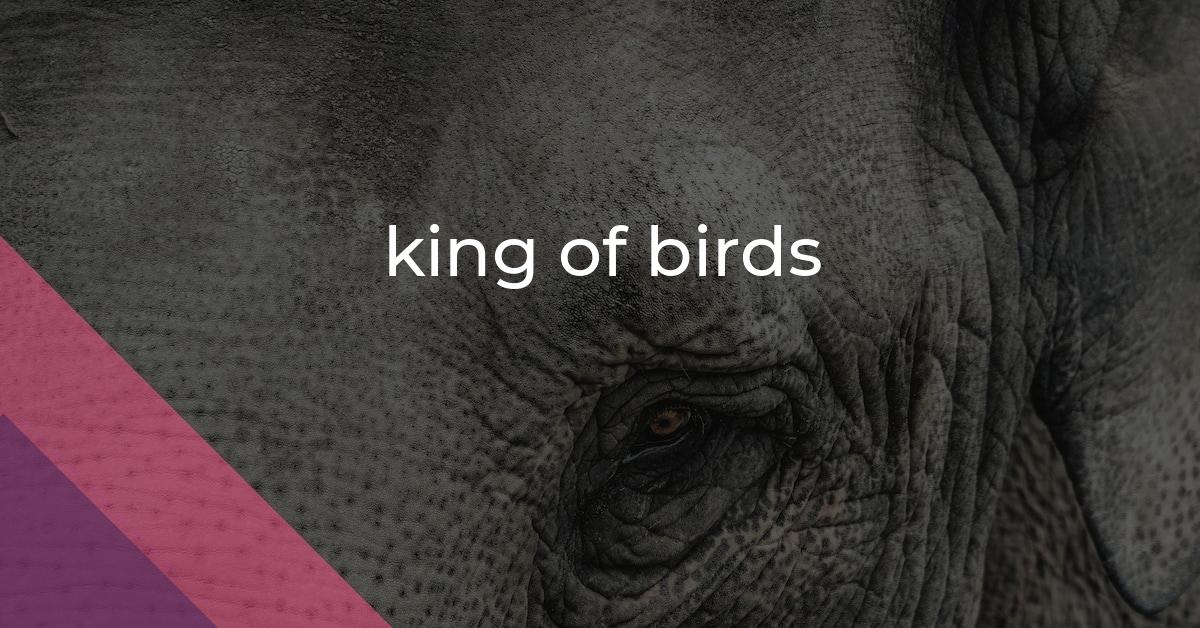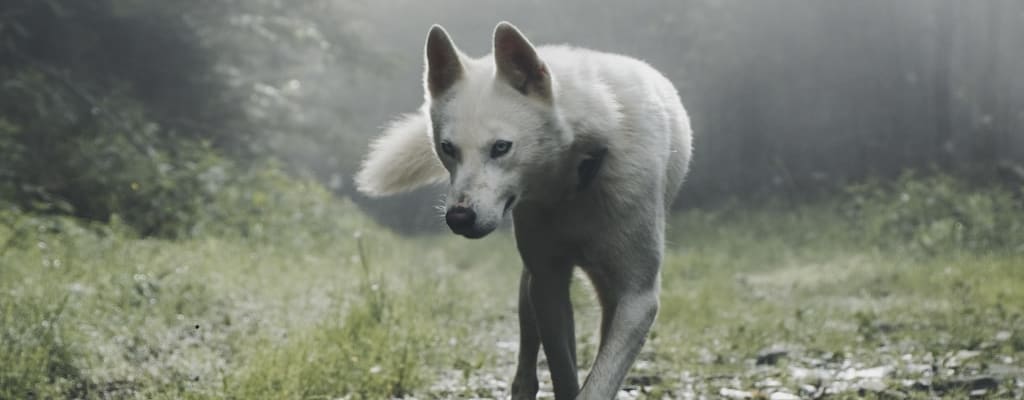king of birds: Idiom Meaning and Origin
What does ‘king of birds’ mean?
The idiom "king of birds" refers to the bird that is considered the most powerful, dominant, or superior among other birds.

Idiom Explorer
The idiom "king's cushion" refers to a position of power or privilege. It implies being in a comfortable and influential role that is highly regarded and protected. This idiom is often used to describe someone who has a coveted or enviable position in society.
When someone is referred to as the "king of the castle," it means they are in a position of power or authority and have control over a particular situation or group of people. This idiom can also imply a sense of dominance and superiority.
The idiom "king of beasts" refers to the lion, the most dominant and powerful animal in the animal kingdom. It symbolizes strength, leadership, and courage.
An idiom meaning an individual or thing that is the most impressive or influential among others in a given field or situation.
The idiom "keys to the kingdom" means having access to the most important or valuable things, often referring to having complete control or authority over a situation, organization, or valuable information.
The idiom "in the lead" means to be in a leading or winning position, often in a competition or race.
The idiom "high and mighty" means that someone is arrogant, haughty, or acting superior to others. It refers to someone who thinks they are better or more important than everyone else.
Regal Ruler
The idiom "king of birds" has several possible meanings and origins. One possible meaning is that it refers to the peacock. The peacock, with its majestic appearance and vibrant colors, has been called the king of birds. Another possible meaning is that it refers to the mythological phoenix. The phoenix is often depicted as the king of birds due to its ability to be reborn from its own ashes. Additionally, the idiom can also be used to describe a person who is considered to be the best or most powerful in a particular field or domain.
The origins of the idiom are not clear-cut. It is difficult to pinpoint its exact origin or the specific circumstances that led to its creation. However, it is likely that the idiom has its roots in ancient mythology and folklore. In many cultures, birds have been associated with power, wisdom, and divinity. For example, the peacock has been revered for its beauty and grandeur, leading to its association with royalty and kingship. Similarly, the phoenix, with its ability to be reborn from its own ashes, has been regarded as a symbol of immortality and greatness.
The idiom "king of beasts" is a related idiom that is often used to describe the lion. The lion has long been regarded as the king of the animal kingdom due to its strength, courage, and ability to lead. Similarly, the idiom "king of the hill" is used to describe a person or thing that is dominant or superior in a particular situation or area. Just as the peacock and phoenix are seen as the kings of birds, the lion and the dominant figure on top of a hill are seen as the kings in their respective domains.
Throughout history, the idiom "king of birds" has been used in various contexts and literary works. It has appeared in ancient texts, such as Aesop's fables, where the peacock is depicted as the king of birds. The idiom has also been used in poetry, literature, and even in modern-day colloquial language. Its usage often conveys a sense of awe, admiration, or supremacy.
In its metaphorical sense, the idiom "king of birds" can also be applied to individuals who are considered to be exceptional or dominant in their respective fields. This usage reflects the notion of power and superiority associated with the king of birds. For example, a person who is highly skilled, talented, or influential in a specific area can be referred to as the king of birds of that domain. This usage highlights the person's expertise, authority, and exceptional abilities.
When we look at the related idiom "king of beasts," we can see that it shares a similar meaning. Just as the peacock is considered to be the king of birds, the lion is considered to be the king of beasts. The lion's strength, courage, and ability to lead make it the dominant figure in the animal kingdom. Similarly, the idiom "king of the hill" refers to a person or thing that is dominant or superior in a particular situation or area. This usage reflects the concept of being on top or in control, just like the dominant figure on top of a hill.
Overall, the idiom "king of birds" encompasses various meanings and interpretations. Its origins can be traced back to ancient mythology and folklore, where birds have been revered and associated with power and greatness. The idiom's usage has extended to describe both the peacock and the phoenix as symbols of royalty and superiority. It has also been employed to describe individuals who are considered exceptional or dominant in their respective fields. While the exact origins and specific connotations of the idiom may remain elusive, its enduring presence in language and literature continues to evoke a sense of wonder and admiration.
Example usage
1. After winning the national birdwatching championship for three consecutive years, John has truly become the king of birds in our community.
2. As the lead singer's voice soared during the concert, the audience regarded him as the king of birds, enthralled by his vocal prowess.
3. Sarah's intricate and lifelike bird sculptures have earned her the reputation of being the king of birds among local artists.
More "Avian" idioms



